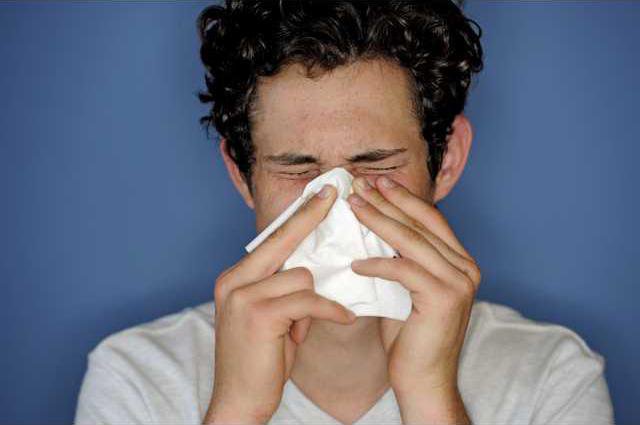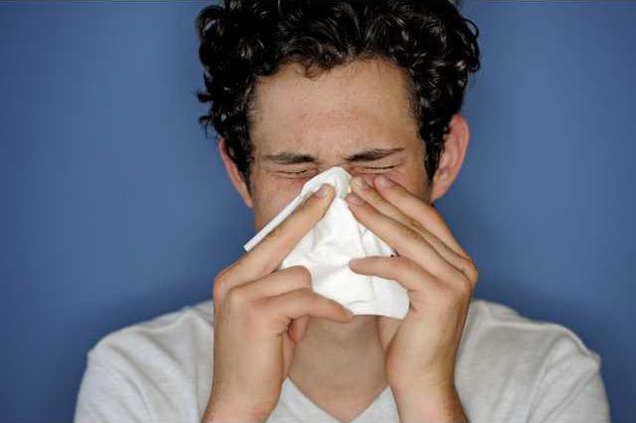If there's ever a time you need your body to be at the top of its game, it's winter — after all, there are holidays to get through, icy roads to drive on, runny noses to wipe ... Unfortunately, there’s also never a more likely time you’ll come down with a cold or flu. Put your game face on this season with the following immune system-boosters. The best offense against cold and flu viruses is having a good defense!
Schedule some one-on-one time with your spouse
As if you needed another reason to be intimate with your husband or wife, new research out of Wilkes University has found that couples who have sex at least once a week “have a 30 percent higher concentration of disease-fighting immunoglobin A in their bodies.” Immunoglobin A is a type of antibody that recognizes and binds to pathogens that have made their way into our bodies. It flags those pathogens for destruction and removal.
“During sex the body releases a surge of endorphins that strengthen the immune system,” study author Carl Charnetski, PhD explained, “which probably accounts for the increase in immunoglobin A.” So, when you add silk pajamas to your Christmas list, explain to your husband you’re doing it for his health.
Exercise 30 minutes a day
The weather outside might be frightful, but that doesn’t mean you’re allowed to skimp on your daily exercise routine. Not only will exercise help you stay fit, but researchers at Appalachian State University in Boone, North Carolina reported, “People who exercised at least five days a week had 43 percent fewer days with a cold during the fall and winter than those who broke a sweat less often.”
Exercise boosts the production of your body’s germ-fighting cells, providing an important defense against sniffles and sneezes. If it’s too cold to exercise outside, stay fit by turning on a workout DVD, visiting the gym or running in place while you watch your favorite sitcom.
Eat yogurt and leafy greens
Besides being a quick and easy breakfast food, yogurt is also a great source of probiotics — good bacteria that increases your body’s white blood cell count, strengthening your immune response. “[Probiotics are] like little soldiers, lining the intestinal tract to fend off invading germs,” said Dawn Blatner, an ADA spokesperson and registered dietician.
Blatner also suggests filling your diet with as much plant-based food as you can, especially leafy greens. These foods are packed with antioxidants and vitamins A, C, and E, all of which help your immune system do its job. Look for creative ways to incorporate vegetables into two meals per day.
Avoid fighting with the in-laws
Really, avoid all possible stressors as much as possible. Stress has been shown to compromise the immune system. Don’t procrastinate projects at work, stop worrying about getting every little cleaning project done at home and find ways to relax and unwind whenever you can. Finding time for yourself is a great way to de-stress, whether it’s attending a local yoga class or sitting for an hour in the library, reading your favorite book.
Go out with your friends
It’s tempting to curl up with a blanket and hot cocoa every night, but this isn’t necessarily the best way to stay healthy this winter. Actually, researchers at Carnegie Mellon University have found that social butterflies tend to have less colds, get more exercise and eat healthier.
It’s also a good idea to get out of your home's stale air during the winter because you may be breathing allergen-laden air. Space heaters, stoves and water heaters “release gases and particulates into the air,” said William J. Calhoun, MD, vice chair at the University of Texas Medical Branch in Galveston.
He went on, “There is also the fairly intense burden of allergens with indoor air quality such as pets [and] house dust mites.” Breathing only this air day in and day out can increase your chance of developing colds, sore throats and coughs.
Don’t become another casualty of cold and flu season this winter. You’ll need every ounce of strength you have to get through the holidays. So eat well, get out of the house and don’t forget the silk pajamas.
Katie Nielsen loves being a mother, cooking, writing, and traveling. Contact her at nielsen.katiec@gmail.com








